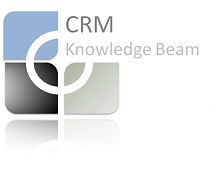A good knowledgebase yields operational efficiencies and customer satisfaction। The faster you or your customer finds information the bigger the benefits. So, you’ve done your homework, you understand the ROI, secured the budget and made a conscious decision to purchase a Knowledge Base Solution. Time to evaluate product features; zoom in, this is important.
Tip: If you have a budget, don’t allow vendors waste your time in producing the obvious ROI calculation. Spend time in evaluating the technology
Search
A ‘Vanilla’ requirement: Spell tolerant, keyword search. They all have it, and if they don’t, drop them off the list. Give extra credit to the vendor that offers out-of-the-box keyword to synonym matching. It will be a life saver down the road.
Natural Language Processing (NLP); very effective for end-users (Self-Service). You don’t need it in call centers; phone based agents don’t have time to type complete sentences. Don’t waste their time.
Tip: Some vendors claim they have NLP simply because they can tokenize text and stem keywords. This so called morphological analysis is not adequate. Look for ability to resolve ambiguity and understand intend. Beware of hidden requirements to create extensive taxonomies and manual corpus annotation.
Browse
The ability to browse groups of articles organized in topic-subtopic hierarchies is a simple and effective way to locate information. Never choose a product that doesn’t have the capability even if you are convinced you don’t need it; your users expect it.
Look for systems that automatically optimize topic-subtopics trees. If the vendor doesn’t have an automatic capability, confirm they have consultants that can do the job.
Tip: folder-subfolders created by authors are rarely useful to an end-user. Look for the capability of decoupling topic-subtopic trees from author taxonomies.
DFAQ
Dynamically generated FAQs is not just a ranking of articles based on frequency they were used. DFAQ is the automatic compilation of end-user questions and their corresponding answer derived from the Knowledgebase. The ranking algorithm should be overridable and must include a time decay factor to reduce the importance of old FAQs.
Tip: my clients find it extremely effective when the DFAQ list is contextual. DFAQ Context can be derived from the selected topic, the search query or the sequence of pages viewed. Look for the vendor that can demonstrate it as an out-of-the-box feature.
Tuesday, May 5, 2009
Subscribe to:
Post Comments (Atom)

No comments:
Post a Comment